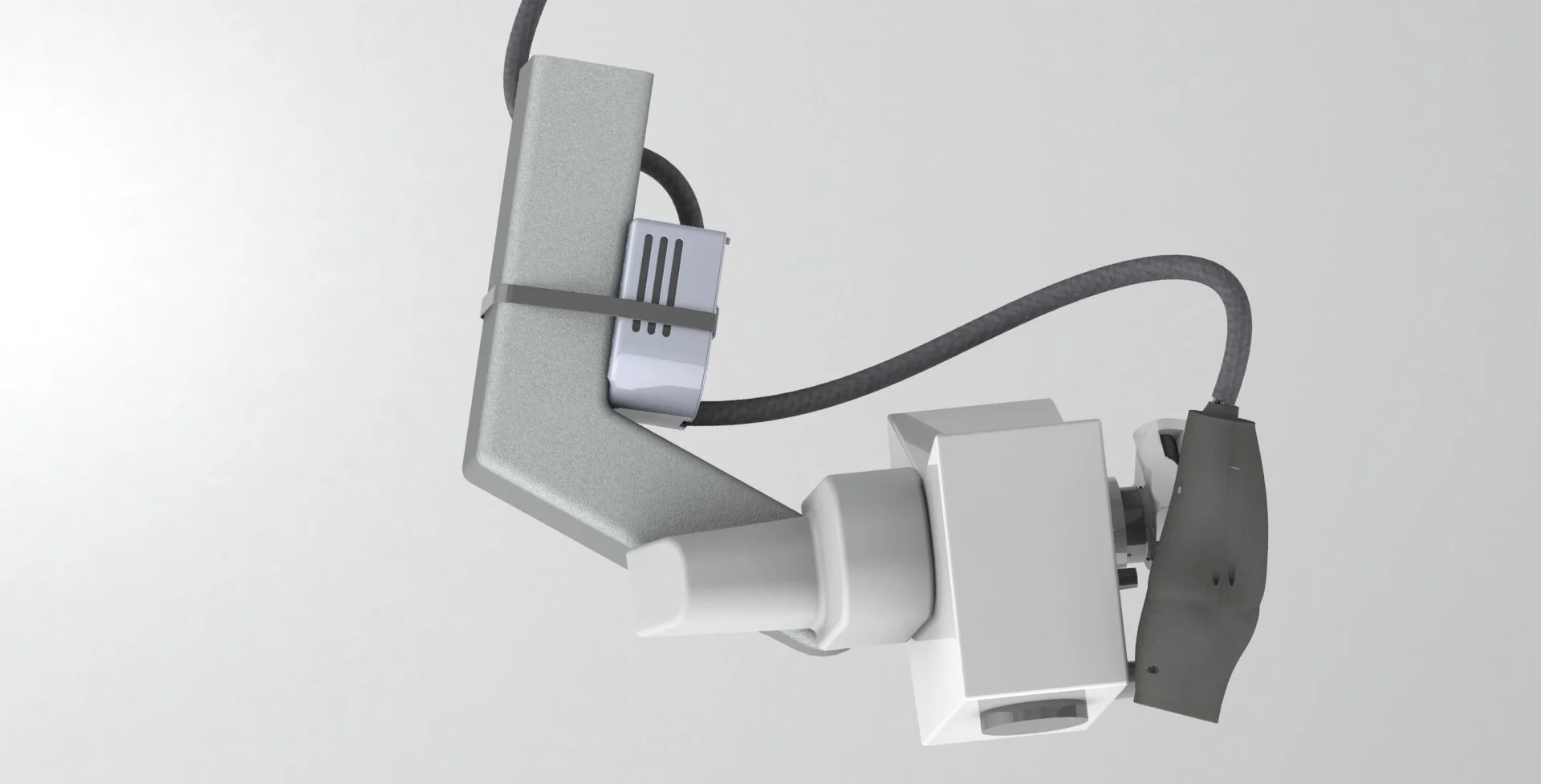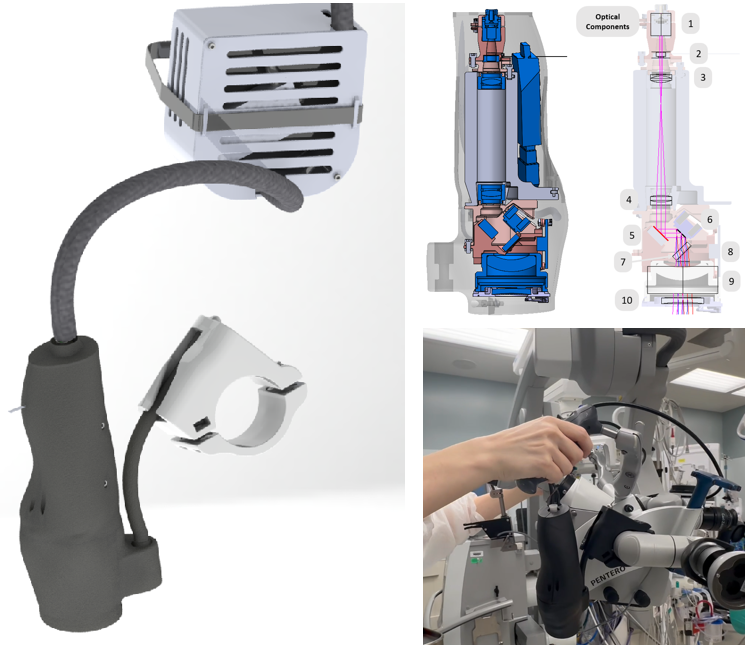
Development of a Nerve-Imaging Microscope for Neurosurgery
TEAMMATES:
Principal Investigator (project lead)
2 Senior Optical Scientists (imaging system design)
Neurosurgeon
ROLE:
Mechanical Design Lead for Microscope, Cabling, Positioning Arm & Medical Cart
CHALLENGE:
Designing a Microscope for Real-Time Nerve Mapping in Neurosurgery
Iatrogenic nerve injuries during neurosurgery are a significant risk for patient outcomes. The challenge was to develop a nerve-imaging microscope capable of mapping nerves in real-time during surgery. The system needed to meet stringent optical, safety, and workflow requirements while ensuring ease of use in the operating room environment.
SOLUTION:
High-precision, ergonomic microscope that seamlessly integrates into the neurosurgery workflow
Precision Mechanical Design: Accurate optical housing with ±0.2mm dimensional tolerance, with custom snap-fits and threaded mounts for easy assembly.
Seamless Integration: Attaches to the Zeiss KINEVO 900 without disrupting workflow, with an ergonomic, one-handed adjustable positioning arm.
Safety-Driven Design: Meets medical safety standards (ISO 14971), with built-in fail-safes and biocompatible materials.
User-Centric Experience: Easy handling, stable positioning, and optimized cable management for a non-distracting, efficient design.
Rigorous Testing: Extensive prototyping and testing to ensure performance, usability, and reliability in surgical environments.
Planning
Project Timeline: Defined clear milestones and a project timeline to ensure on-time delivery.
Cable Management & Power Budgeting: Designed efficient cable management solutions and created power budgets to ensure optimal system performance and compliance with safety standards.
Cross-Disciplinary Collaboration: Coordinated with optical scientists, surgeons, and engineers to define user needs and system requirements.
BOM Management & Specifications: Managed a complex BOM with 100+ parts, including 14 optical, electrical, and MEMS components, and 15 custom mechanical parts, ensuring seamless integration and performance.
Design
Mechanical & Optical Integration: Designed custom push fits, snap-fit joints and threads for optical housings.
Stress & Performance Analyses: Conducted hand calculations and finite element analyses (FEA) for structural integrity and load-bearing components.
Design for Manufacturing (DFM) & Assembly (DFA): Focused on SLA printing optimization and ease of assembly for rapid prototyping.
Ergonomic Enclosure Design: Leveraged surface modeling for a user-friendly, ergonomic enclosure.
Positioning Mechanism & Gooseneck Arm: Engineered a precise, adjustable positioning arm, including characterization and vendor collaboration for gooseneck arm selection.
Safety & Compliance: Applied ISO 14971 risk management standards, integrated built-in fail-safes, and ensured compliance with medical device safety regulations.
Testing & Iterating
Optical Testing & Optimization: Designed custom test fixtures to evaluate optical performance and optimize OCT imaging parameters.
Tolerance Analysis: Conducted detailed tolerance stack analysis and laser beam characterization to ensure high-quality imaging.
Usability & Ergonomics Validation: Performed usability studies in the operating room, iterating on the design based on feedback for intuitive use and seamless workflow integration.









